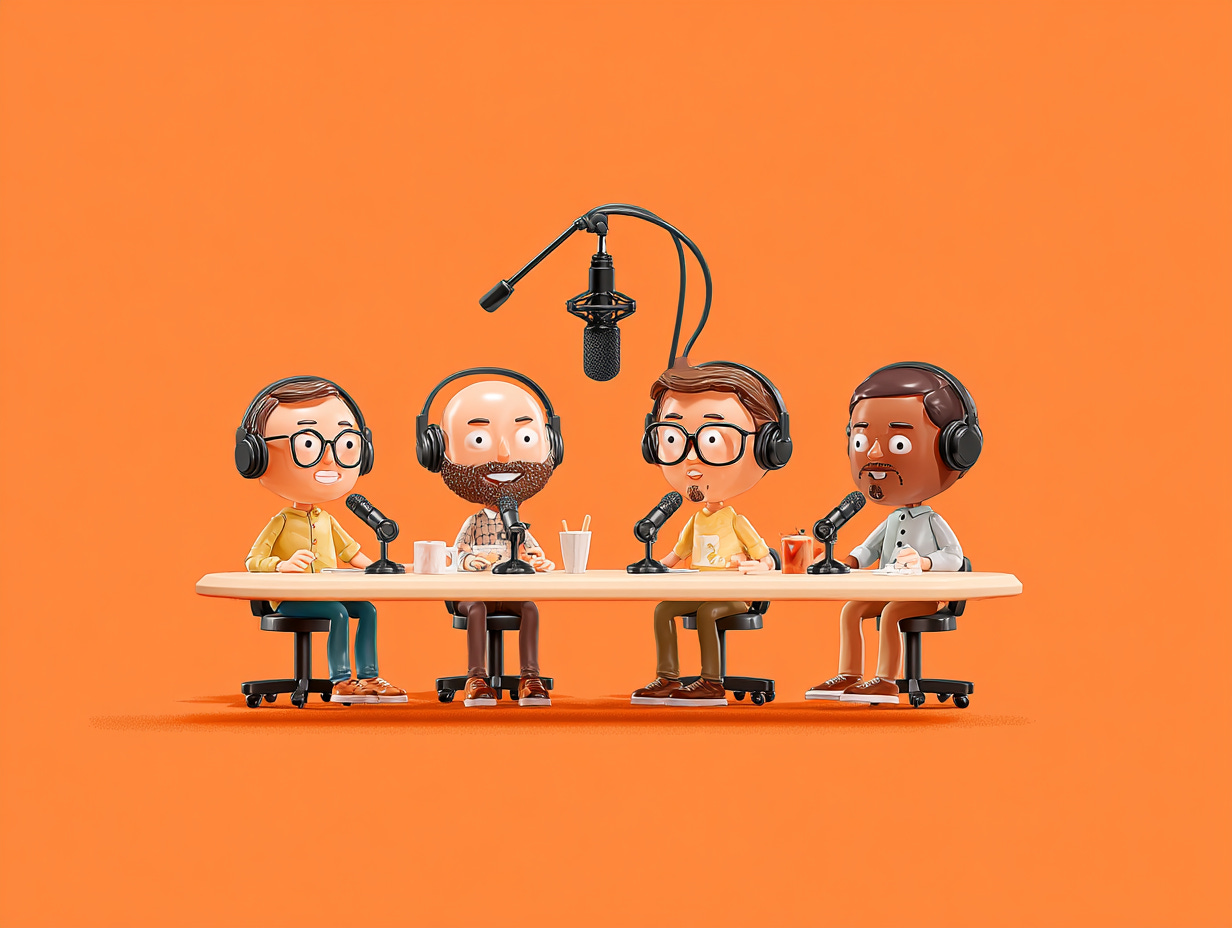Joe Rogan, Andrew Huberman, Andrew Schulz... None of them (save Huberman) are experts, yet their words are treated like gospel. Their podcasts pull in hundreds of thousands of listeners per episode. That kind of reach used to belong to media empires.
Podcasts have become so powerful that brands are faking them in ads. I've seen commercials where guests answer an unspoken question from a host who doesn't exist. Just the illusion of a podcast confers credibility. That credibility exists because of what guys like Joe Rogan and Huberman have done to the landscape.
Joe Rogan alone is credited with influencing the U.S. election. That's how much perceived weight his voice carries. Yet, he is not a political analyst. He's not a policy expert. He's not trying to be. What he is is a relatable host who can hold, by all appearances, an intelligent conversation.
When you spend hours upon hours listening to any of these hosts, it tricks your brain into thinking they're a friend. You trust them as you would a friend, and don't scrutinize them as you would a journalist or expert.
There's a powerful psychological cocktail at work here:
Familiarity + Illusion of Authority + Identity Reinforcement + Constant Exposure = Belief.
We don't trust podcasters because they're right. When they speak casually, confidently, and for hours on end, over time, it creates something powerful: a parasocial relationship. You start to feel like you know them. Like they get you. You trust them because they feel right.
When someone gets you, you don't fact-check them. You believe them.
That's their first hook: intimacy disguised as information.
The second is their delivery.
Most experts speak with caveats. "Data is being studied," "It depends," "We're looking into it." Podcasters don't. They talk to us in absolutes with certainty. It works because in a world starving for clarity, their confidence can sound like truth.
Add some repetition, and that cocktail grows stronger. Your brain starts to believe what they're saying. It's called the illusory truth effect. When you first hear a claim, you might question it. The more often you hear it, especially from a source you trust, the more familiar it becomes, and familiarity gets mistaken for accuracy.
Finally, there's the fact that people have stopped trusting institutions.
Legacy media, government, and academia all have eroded credibility. It's much easier to trust someone relatable over someone credentialed. If you don't trust the expert, it's easy to trust the guy with the mic who lifts weights, smokes cigars, and reminds you of your cousin who tells it like it is.
Podcasters have gone beyond just informing us. They affirm and reinforce our identities. Whether it's the anti-woke, the optimization bros, the libertarians, or the New Age healing seekers, there's a podcaster who speaks your language and mirrors your worldview, and when you find one, the question changes from "Is this true?" to "Is this my truth?"
Take Andrew Huberman, for example. While he's a legitimate neuroscientist, he's amassed a para-medical cult following. Many of his listeners treat his words as gospel. Keep in mind that his recommendations are not peer-reviewed. Yet, countless "wellness bros" without scientific training quote Huberman out of context to sell supplements, cold plunges, and dopamine detoxes to great effect.
Podcasts are literal conversational propaganda. Their long-form nature, low-friction, and conversational tone make them feel intimate. This lowers our defenses and stops becoming less of a lecture and more of a hangout. Again: repetition + confidence = belief. Even discredited claims, if repeated enough in this setting, gain traction.
We don't just listen to podcasters, we identify with them. Huberman's biohackers, Peterson's lost young men, or Schulz's comedy-first crowd, all reinforce a worldview, lifestyles, or a sense of self that an audience somewhere already aligns with. It goes from "I like what he's saying" to "he gets me and my views."
But there's a catch. When belief is built on vibes instead of verification, we slip from insight into ideology. When those we trust and listen to aren't held up to any standard but popularity, we lose the ability to recognize the truth.
This isn't about canceling podcasts or distrusting every voice behind a mic. Long-form conversation can illuminate and add to society. They can challenge entrenched narratives and explore nuance. But that only works if we, as listeners, stay vigilant.
So next time your favorite host drops a hot take, ask yourself, "Is this an opinion or a fact?"
"Does it feel true because it is, or because I want it to be?"
"Who benefits if I believe this?"
Finally, do the research.
And always remember, these aren't experts. They're entertainers. Their mic may be mighty, but your mind is the final gatekeeper.
Don't just listen.
Think.
I hate paywalls. They kill curiosity and reward clickbait. That’s why the core content here will always be free.
But this takes time, thought, and energy. If it helps you see the world differently, consider supporting it by buying me a coffee or becoming a paid subscriber for exclusive content, audio versions of each essay (coming soon), and deeper dives.
Thanks for being here. Stay Curious. Question Everything.
–Luis



